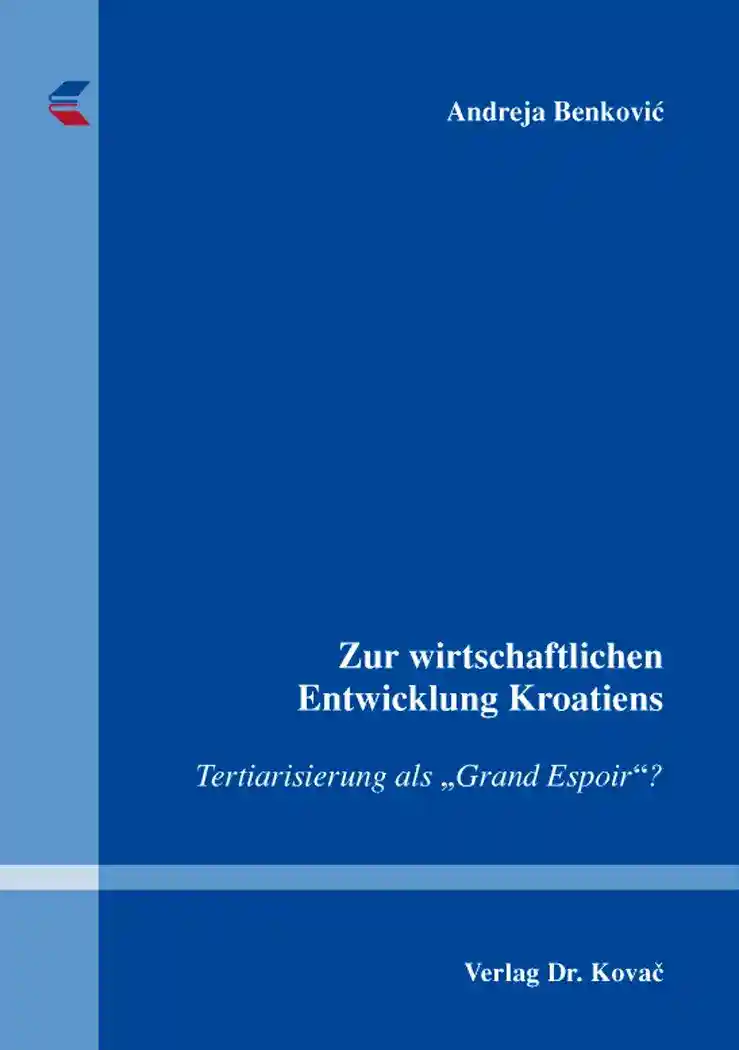Andreja BenkovićZur wirtschaftlichen Entwicklung Kroatiens
Tertiarisierung als „Grand Espoir“?
KONJUNKTUR – Studien zur innovativen Konjunktur- und Wachstumsforschung, volume 6
Hamburg 2015, 530 pages
ISBN 978-3-8300-8486-0 (print) |ISBN 978-3-339-08486-6 (eBook)
About this book deutschenglish
The collapse of the system of workers’ self-management and the subsequent transformation process led to a sectoral structural change of the Croatian economy. However, the forced deindustrialization and tertiarisation induced a massive erroneous trend which determines the current economic situation. The aim of this book is to examine to what extent the tertiarisation process in a transition country such as Croatia could be considered as an option for a successful economic development. By systematizing and evaluating basic theoretical approaches dealing with economic growth and structural change it could be demonstrated that modern approaches are still based on the demand bias- and productivity bias-hypothesis according to Fourastié (1949) and Baumol (1967) in order to explain the impetus of an economic society towards a service economy. The author identifies two strands in literature: On the one hand the considerations concerning structural change are “reconciled” i.e. merged with growth theory. On the other hand the Baumol’s disease could be “cured” by determinants discussed in endogenous growth theory and the innovative characteristics of services. Empirical studies of structural change in selected European welfare state systems further show the influence both social and political factors can have on country’s economic development. The three stages of development of the Croatian economy after the Second World War are described in the second part of this book by using the theoretical instruments beforehand. It could be shown that the failures of the workers’ self-management prevented structural change and productivity growth in the first stage whereas in the 1990s mainly the failed economic and social policy led to negative economic and social outcomes. During the forced integration process to the EU the economic crisis starting in the second half of the 2000s impinged on the Croatian labour market. The analysis of the capability to be innovative as well as the summary of the main findings in the last part of this work discloses that promoting future growth and employment in Croatia is possible by a continued structural and social change.Keywords
KroatienSektoraler StrukturwandelStruktureller WandelVolkswirtschaftWachstumstheorieWirtschaftsentwicklungWirtschaftstheorieWohlfahrtsstaatIhr Werk im Verlag Dr. Kovač

Möchten Sie Ihre wissenschaftliche Arbeit publizieren? Erfahren Sie mehr über unsere günstigen Konditionen und unseren Service für Autorinnen und Autoren.
